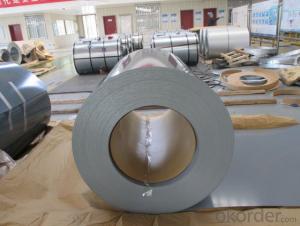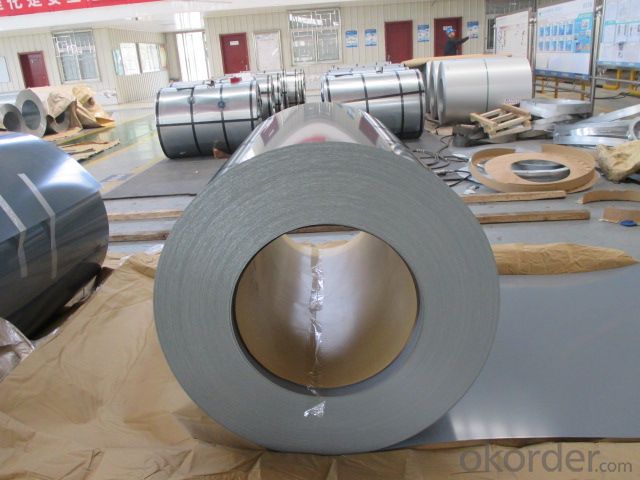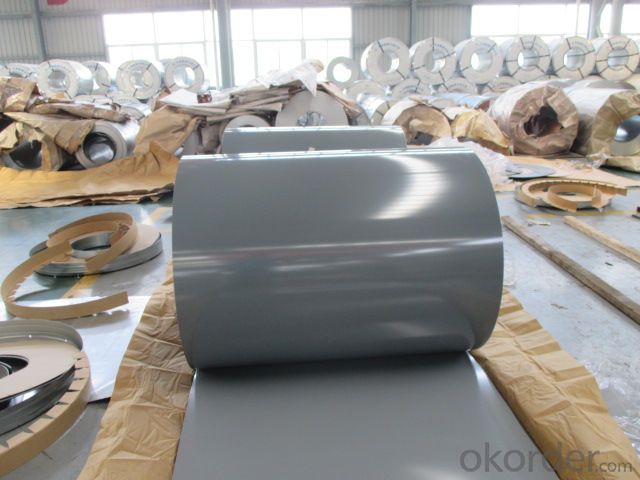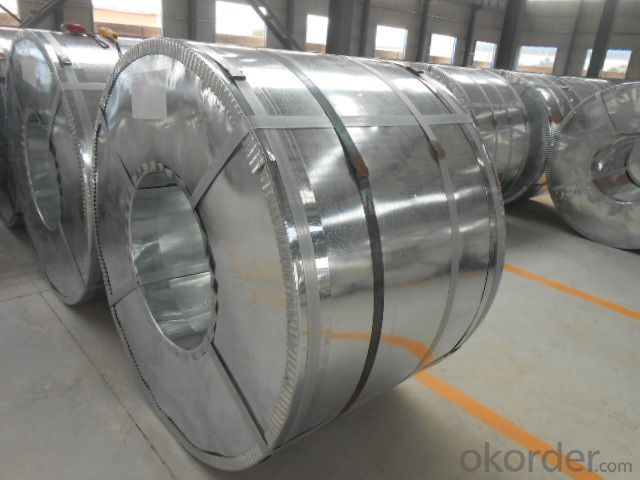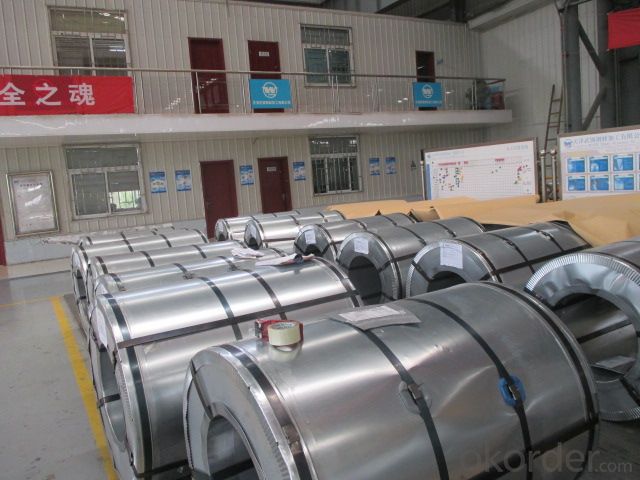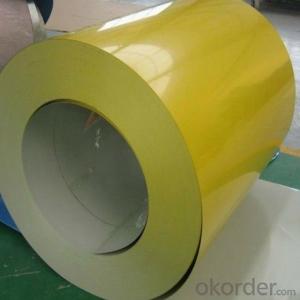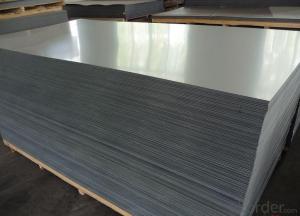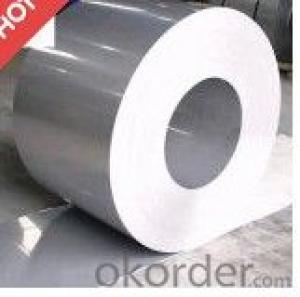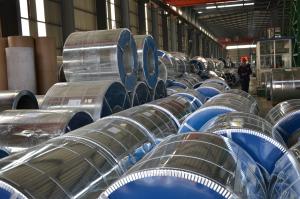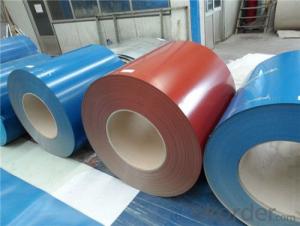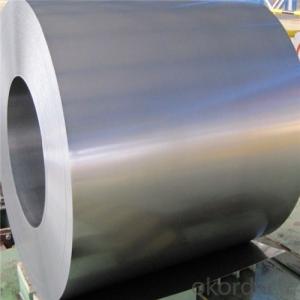GALVANIZED STEEL Z08
- Loading Port:
- China Main Port
- Payment Terms:
- TT OR LC
- Min Order Qty:
- -
- Supply Capability:
- -
OKorder Service Pledge
OKorder Financial Service
You Might Also Like
Galvanized steel coil
Packaging & Delivery
Packaging Detail: seaworthy export package
Delivery Detail: on request
Specifications
1. more than 10 years’ experience on this field
2. advanced equipments
3. competitive price
4. soonest delivery
Product Description :
Prime Galvanized steel coil
Packaging & Delivery
Packaging Detail: seaworthy export package
Delivery Detail: on request
Specifications
1. more than 10 years’ experience on this field
2. advanced equipments
3. competitive price
4. soonest delivery
Product Description :
Commodity
Hot dip galvanized steel coil
Technical Standard:JIS 3302 / ASTM A653 / EN10143/ GB/T 2518
Grade:DX51D/ S250,280,320GD,SGCC,SGHC,SGH340,SGH400,SGH440,G450,G550
Types:Commercial / Drawing / Deep Drawing / Structural quality
Width: 900mm/1000mm/1219mm/1200mm/1220mm/1250mm
Thickness: 0.2mm~4.0mm
Type of coating: galvanized
Zinc coating: Z40-275g/m2,Z40-Z450g/m2
Surface treatment:zero spangle / regular spangle/ big spangle
ID coil: 508mm or 610mm
Coil weight: 3-10/MT per coil
Package:Properly packed for ocean freight exportation in 20''container
Application::home appliances, constructions, building, machineries
Our Advantages :
1. Expertise:
More than 10 years of manufacture: we know how to properly handle every step of production.
2. Competitive price:
We can offer competitive prices to our customers.
3. Accuracy:
We have excellent technicians and leaders, which can ensure our products are exactly what you want.
4. Materials:
All galvanized steel coils are made of high-quality raw materials.
5. Certificate:
Our products are certified by ISO9001.
6. Productivity:
We have large-scales of production lines,, which can guarantee all your orders will be finished in earliest time.
Hr CGL Technical Process:
Coil loading-> uncoiling-> cutting-> welding-> entry accumulator-> Heating and deoxidization-> galvanizing-> air cooling->water quenching-> air dryer-> tension leveler-> Passivation->air dryer->exit accumulator-> oiling-> cutting-> recoiling->coil unloading-> packing
The furnace heating style: improved Sendzimir heating technology
Hourly output: max.76.3t/h
Process after coating: tension leveling, Passivation or oiling
Our Service
Our quality
Test Equipments of Prepainted Galvanized Steel Coil : Salt-spray tester; Atomic absorption spectrophotometer; Rockwell typer hardness tester; Tensile test machine; Metrohm titration; Laboratory Bend test machine.
Our packing
Properly packed for ocean freight exportation in 20''container, galvanized metal fluted rings on inner and outer edges, galvanized metal & waterproof paper wall protection disk, galvanized metal & waterproof paper around circumference.
R&D department
R&D department concentrates on researching and developing reliable products with best quality. The quality department test and control every process of production to guarantee the best quality of products
- Q: How does the thickness of a steel coil affect its applications?
- The thickness of a steel coil has a significant impact on its applications. The thickness determines the strength, durability, and versatility of the steel, making it suitable for various uses across different industries. In applications where strength is crucial, such as the construction industry, thicker steel coils are preferred. Thicker coils provide higher structural integrity and load-bearing capacity, which is essential in buildings, bridges, and infrastructure projects. Thicker steel coils also offer better resistance to bending, warping, and other forms of deformation, making them ideal for heavy-duty applications. The thickness of a steel coil also affects its durability. Thicker coils have a higher resistance to wear, corrosion, and damage, making them suitable for harsh environments or applications that involve constant friction or exposure to elements. For example, thicker steel coils are commonly used in manufacturing heavy machinery, automotive parts, and mining equipment, where durability is paramount. Furthermore, the thickness of a steel coil determines its versatility and adaptability. Thinner coils can be easily formed into different shapes and sizes, making them suitable for applications that require intricate designs or tight tolerances. Industries such as automotive, aerospace, and consumer electronics often rely on thinner steel coils for their lightweight and flexible nature. On the other hand, thicker steel coils may limit the range of applications due to their weight and reduced flexibility. They are more suitable for applications that prioritize strength and durability over versatility. These applications include structural components, large-scale machinery, and industrial equipment. In summary, the thickness of a steel coil plays a crucial role in determining its applications. Thicker coils offer increased strength, durability, and resistance, making them ideal for heavy-duty applications in construction and manufacturing industries. Thinner coils, on the other hand, provide versatility and adaptability, making them suitable for applications that require intricate designs or lightweight properties.
- Q: What is the weight of a standard steel coil?
- The weight of a standard steel coil can vary, but on average, it ranges from 10 to 20 tons.
- Q: I'm sort of a sword maker. You could say I'm an amateur blacksmith. I want to find a dependable source of high-grade steel. I've made a few blades and from what I know about the difference between true steel and cheap steel, I have yet to work with such. All of the metal I have used could not have been true high carbon spring steel because while they are hard, their properties do not reflect that of true steel. I would sincerely appreciate any guidance on where I could order some fine-quality steel so I could produce a truly fine blade.
- The phrase true steel has no technical meaning. Steel comes in many alloys and grades. Sorry I have no idea where to get different grades and types of steel. McMaster Carr carries a lot of steel bars, sheets, etc.
- Q: What are the limitations of using steel coils in certain applications?
- Steel coils have a few limitations that may restrict their use in certain applications. Firstly, steel coils can be heavy and bulky, making them less suitable for applications where weight reduction is crucial. For instance, in industries such as aerospace or automotive, where lightweight materials are preferred to enhance fuel efficiency and improve performance, steel coils may not be the most suitable choice. Secondly, steel coils are vulnerable to corrosion, especially in environments with high moisture or exposure to chemicals. This limitation can restrict their use in applications where resistance to corrosion is crucial, such as marine or coastal structures. Additional protective coatings or regular maintenance may be required to mitigate this limitation, adding to the overall cost and maintenance efforts. Moreover, steel coils may not possess the necessary flexibility or malleability required for certain applications. In industries such as construction or manufacturing, where materials need to be easily shaped or bent into specific forms, steel coils might not offer the desired level of flexibility. This limitation can lead to difficulties in achieving desired designs or may require additional processing steps to mold the steel coils into the desired shape. Lastly, steel coils can have limitations in terms of their temperature resistance. In high-temperature applications, such as in furnaces or power generation, steel coils may experience thermal expansion or deformation, which can compromise their structural integrity. In such cases, alternative materials with higher temperature resistance, such as refractory metals or ceramics, may be more suitable. Overall, while steel coils are widely used and versatile materials, their limitations in terms of weight, corrosion resistance, flexibility, and temperature resistance can restrict their use in certain applications. It is crucial to consider these limitations and assess the specific requirements of the application when selecting materials for optimal performance and durability.
- Q: How are steel coils used in the manufacturing of construction cranes?
- Steel coils are used in the manufacturing of construction cranes primarily for their strength and durability. These coils are formed into various components such as beams, plates, and sections, which make up the structural framework of the crane. Additionally, steel coils are used to fabricate critical parts like the boom, jib, and counterweights, ensuring the crane's stability and lifting capacity. The high tensile strength of steel coils enables cranes to withstand heavy loads and harsh working conditions, making them essential for safe and efficient construction operations.
- Q: where can i get a thick sheet of steel ? and is steel bullet proff for example if you shoot a bullet on steel will that bullet bounce right off the steel ?
- Try a local Fastenal store, they can order it for you by the sheet. If that doesnt help, then try a welding or fabricating store.
- Q: Can steel coils be coated with anti-corrosive substances?
- Yes, steel coils can be coated with anti-corrosive substances such as zinc, paint, or polymer coatings to protect them from rust and corrosion. These coatings act as a barrier between the steel surface and the surrounding environment, preventing contact with moisture and corrosive elements.
- Q: What are the challenges in storing and handling steel coils?
- Storing and handling steel coils presents numerous obstacles due to their size, weight, and potential risks associated with transportation and storage. The following are some of the challenges: 1. Space requirements: Steel coils are typically large and bulky, necessitating ample storage space. Finding suitable storage facilities that can accommodate the size and weight of the coils can be difficult, particularly in urban areas with limited space. 2. Weight and handling: Steel coils can weigh several tons, making safe handling a challenge. Specialized equipment, such as cranes or forklifts with sufficient lifting capacity, is necessary to move and position the coils without causing damage or injury. 3. Stackability: Storing steel coils in a secure and efficient manner requires careful consideration of their stackability. Coils must be stacked in a way that prevents deformation or damage to the lower coils, ensuring stability and minimizing the risk of toppling. 4. Corrosion prevention: Steel coils are susceptible to corrosion, especially when exposed to moisture or harsh environmental conditions. Implementing proper corrosion prevention measures, such as protective coatings or climate-controlled storage, is essential to maintain the quality and integrity of the coils. 5. Safety risks: Handling steel coils can be hazardous, as they can unexpectedly shift during transportation or storage. This poses a risk to workers involved in the handling process. Adequate training, appropriate personal protective equipment (PPE), and strict safety protocols are vital to minimize the potential for accidents or injuries. 6. Transportation challenges: Transporting steel coils from manufacturing facilities to storage facilities or end-users can be logistically complex. Coordinating the loading, securing, and unloading of the coils onto trucks or shipping containers requires careful planning and adherence to safety regulations. 7. Quality control: Steel coils must be stored and handled in a manner that maintains their quality. Mishandling or improper storage conditions can result in deformations, scratches, or other defects that can impact the performance and value of the steel. In conclusion, the challenges encountered in the storage and handling of steel coils necessitate attention to detail, appropriate equipment, and adherence to safety protocols to ensure the integrity of the product, the safety of workers, and the efficiency of operations.
- Q: what is the difference between metal and steel
- well, steel is a type of metal. It's sort of like asking the difference between a bug and an ant, an ant is a bug, but not every bug is an ant. Likewise, steel is metal, but not all metal is steel. Gold is metal, Silver is metal, Iron is metal, Steel is metal.
- Q: Corten steel tends to overheat in hot environments? (for example copper heats up under the sun)
- Weathering steel, best-known under the trademark COR-TEN steel and sometimes written without the hyphen as Corten steel, is a group of steel alloys which were developed to obviate the need for painting, and form a stable rust-like appearance if exposed to the weather for several years. Overheating ? It's not possible for a metal to get hotter than it's environment unless there is a source of radiation. The sun shining on a metal will heat up a bit, as will any material, but the amount is small and depends on the surface reflectivity. Define what you mean by overheating. .
Send your message to us
GALVANIZED STEEL Z08
- Loading Port:
- China Main Port
- Payment Terms:
- TT OR LC
- Min Order Qty:
- -
- Supply Capability:
- -
OKorder Service Pledge
OKorder Financial Service
Similar products
Hot products
Hot Searches
Related keywords
